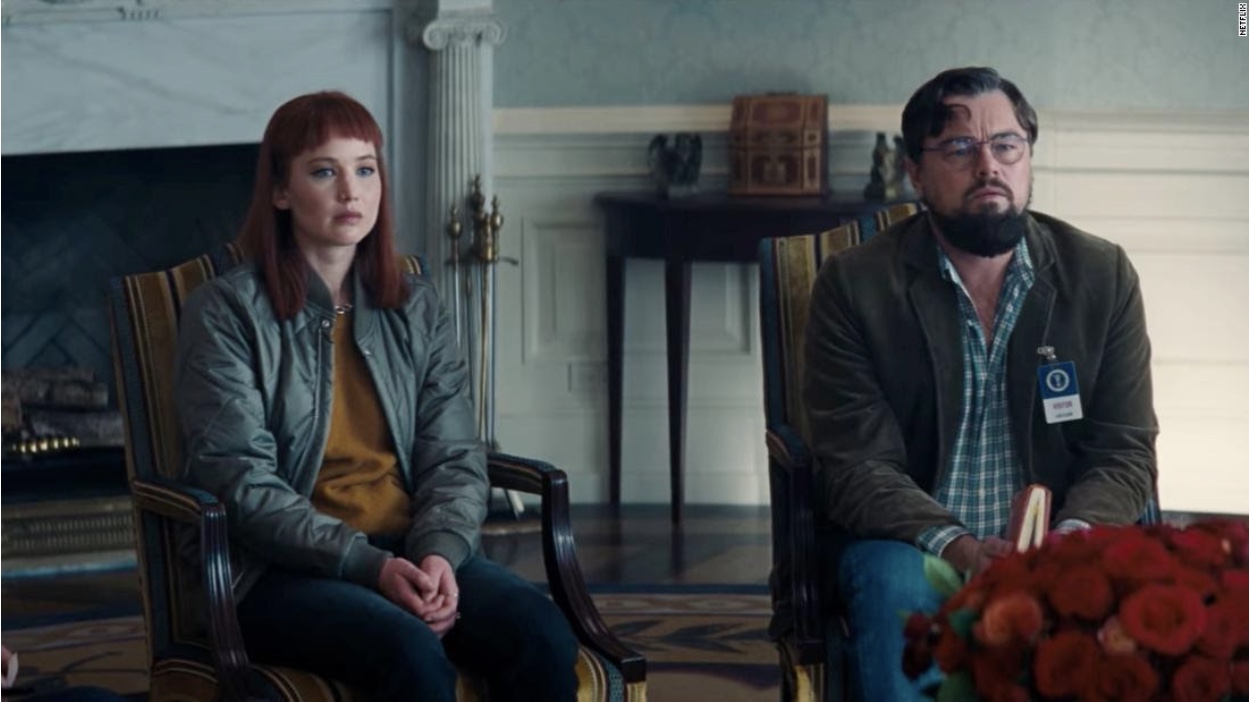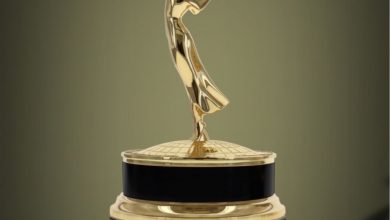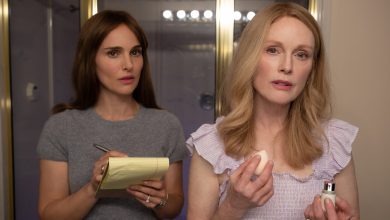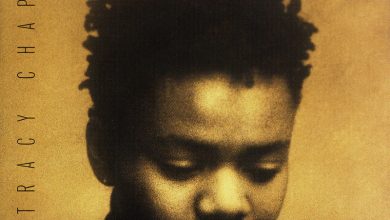How Not to Talk About the Climate Crisis (or, a Review of “Don’t Look Up”)

Still from “Don’t Look Up” from Netflix
IMAGE DESCRIPTION: A still from the 2021 Netflix film, “Don’t Look Up,” starring Jennifer Lawrence (left) and Leonardo DiCaprio (right). Lawrence is wearing a light grey-green jacket, a dark yellow sweater underneath the jacket, and blue jeans; she is also wearing a red-haired wig with blunt, short bangs. DiCaprio is wearing a pair of light-colored glasses, a light-brown suit jacket, a flannel green-and-white button-up shirt, and light blue jeans. In his hands is a small, light-colored notebook. The two are sitting in a professional-looking office or room adorned with a large fireplace and a glossy, brown table in the background. In the foreground, a bouquet of red flowers is placed in the right-hand corner, somewhat obscuring DiCaprio’s jeans.
WARNING: The following review contains spoilers for the 2021 film, “Don’t Look Up,” streaming exclusively on Netflix.
Allow me to begin with this: climate change is real. It is an existential threat to our planet to which humans are contributing. Not only are we not doing enough to prevent it, but we also do not know how to prevent it. Mostly because we don’t know how to engage in a public, solution-oriented discussion about climate change.
Part of this is due to how polarized America is along moral, cultural, social, political, and economic lines, but focusing on that neglects the fact that discussions about the climate crisis are largely inaccessible. As Ellen Sciales wrote in a 2021 op-ed for Teen Vogue, “We hear about “parts per million,” polar bears and melting glaciers, but don’t understand the ways the climate crisis is dramatically transforming our lives. We have no introduction to climate science, the international climate community, or the reports and conferences that warn us of what our future will look like.” How do you sound the alarm when it is likely to go silent in the places and communities that will be hit the hardest by the climate crisis?
In that regard, I understand why writer-director Adam McKay went the satirical route in order to address the current climate emergency. Not only is humor now more welcomed than ever, but polemic satire has become McKay’s specialty over the past few years, thanks to “The Big Short” which explored the 2008 financial collapse, and “Vice,” a dark satirical dramedy that retraced the years and politics of the Bush Administration through the eyes of Vice President Dick Cheney.
With these two films, McKay has positioned himself as a satirist for the doomscroll age, someone who believes comedy can change the world, as long as the world is willing to look at itself in the mirror. His latest satire, “Don’t Look Up,” however, doesn’t just hold a mirror up to society. Rather, it asks a bunch of famous white people to take turns holding said mirror and scream at the audience for whatever is grinding McKay’s gears.
Aggressively advertised as an allegorical climate change fable, “Don’t Look Up” isn’t just a satire of the current climate crisis; it’s also a satire of our reaction to the climate crisis. And the mass media industry. And the celebrity industrial complex. And rich, white, elite politicians. And ultra-rich billionaires.
In other words, “Don’t Look Up” is about a lot of stuff…. and climate change. It’s also a bad movie. In his attempt to lacerate society for its lack of urgency and denial of science and reasoning, McKay reveals he lacks the range to lead such an urgent and multi-faceted discussion.
It’s 2022, and We’re Still Doing Misogynistic Comedy?
“Don’t Look Up” centers on PhD student Kate Dibiasky (Jennifer Lawrence, making her return to the silver screen after a three-year break) and her advisory professor Dr. Randall Mindy (Leonardo DiCaprio, yet another conventionally attractive male actor cast as a nebbish movie professor), two astronomers who discover a comet orbiting outside the solar system. But their astonishment turns into horror when they learn said comet will collide with Earth in six months’ time. From there, the movie follows Kate and Randall’s attempts to warn the public of the impending danger, which are met with a resounding – and alarming– meh. Not even the President of the United States (Meryl Streep) seems terrified by the news; she’s more concerned about her poll numbers than the end of the world.
As things trudge along, “Don’t Look Up” struggles to give the viewer a reason to care about Kate and Randall outside of their startling discovery and their subsequent mission to alert the world. Moreover, the film reveals a stark contrast in how the two leads are characterized. All we know about Kate, for example, is that she loves the Wu-Tang Clan (and, yes, there is a cringeworthy scene where Lawrence raps along to a Wu-Tang track) and has an uncaring journalist boyfriend (Himesh Patel). But that’s it. Instead of giving his female co-lead a well-rounded character arc, McKay makes Kate the butt of misogynistic “jokes.”
One of the film’s unfunny running gags involves Kate being the target of the President’s weirdly servile son, Jason (Jonah Hill). Upon meeting her, Jason immediately dislikes Kate, hurling insults at her whenever he gets the chance. (Fun Fact: Hill spent an entire day improvising as many insults as he could sling at Lawrence.) Furthermore, anytime Kate is transported to a top-secret location, Secret Service agents put a bag on her head– at Jason’s request. “You know, I asked them to put the bag over your head,” he sneers. “Only CIA does that, but I asked them to do it.” It’s not a matter of national security; it’s just about humiliating a woman for no rational reason.
Another major running gag is Kate going viral following a very panicked outburst on national television; we’re treated to cutaway gags and scenes of memes, GIFs, and posts making fun of Kate’s facial expressions, the tone of her voice, and her panicked shout of “We’re all gonna fucking die!” There’s even a throwaway scene between Kate’s boyfriend and his co-worker, with the latter implying that Kate may have bipolar disorder and recommending a therapist for her. Eventually, the boyfriend gets in on the public shaming by writing a blog post that doubles as a public break-up and cynically capitalizing on Kate’s status as an online pariah.
Meanwhile, Randall is given a well-rounded arc that sees the socially anxious professor transform into an overnight celebrity struggling with the ethical and moral implications of instant fame. Whereas Randall experiences significant character changes, Kate is an outcast from start to finish. This difference is no more apparent than when Randall has an outburst of his own and it goes unchallenged. While there are no scenes of Randall getting memed, it is implied that, regardless of how he acted, Randall didn’t suffer any serious consequences for it. If anything, it likely brought him greater fame.
For all its “commentary” (more on this later) on the current cultural zeitgeist, “Don’t Look Up” fails to offer tactful insight about the mass media industry’s continued humiliation of girls, women and femmes. Instead, McKay piles on.
Last year, significant conversations about mass media’s treatment of women and femmes were reignited when pop icon Britney Spears publicly fought back against the decade-long conservatorship that robbed her of bodily autonomy and agency. As many sought to report on Spears’ public court battle, The New York Times released their documentary, “Framing Britney Spears,” which re-examined years of misogynist and ableist media coverage of the pop star. From her public battle with ill mental health to that Diane Sawyer interview, Spears is one of many famous women and femmes who have experienced misogyny at the hands of the mass media. And, as “Don’t Look Up” demonstrates, such treatment isn’t limited to real girls, women, and femmes. This shouldn’t have to be said, but there’s nothing funny about girls, women, and femmes – whether real or fictional – being humiliated.
As the film’s second act draws to a close, Kate ticks off the President one last time. When the government forces her to relocate off the grid and sign legally binding papers that restrict her from talking about the comet again, an exasperated Kate obliges. (“I don’t care,” she replies tiredly.) As sad as it is to watch Kate give up, I oddly felt relieved. If you became a nationwide laughing stock, constantly mocked online and in real life, you’d take advantage of that out, too.
A White Liberal/Savior’s Tale
When you type the word “climate activist” into Google, the first two hits are “climate activists” and “climate activist greta.” The latter refers to Greta Thunberg, the nineteen-year-old climate activist who took the world by storm with her fiery speech at the 2019 United Nations Climate Action Summit and her unflinching ability to rip adults a new one over their inaction on the ongoing climate crisis. In that same year, a Vox article declared Thunberg “the most famous” among a group of young climate activists who descended on Capitol Hill to demand that Democratic members of the Senate Climate Change Task Force finally take action.
While Thunberg is a commendable activist and youth leader, the amount of media coverage and public adoration has turned her into the face of the mainstream climate movement at the expense of Indigenous, Black, and Brown youth activists. As Thunberg’s profile rose, the work of teens and young adults of color advocating for climate justice was often obscured or erased. That’s not Thunberg’s fault, though. The blame lies with mass media, which likes to show social justice movements and advocacy through white eyes, a tradition “Don’t Look Up” blatantly follows. In centering Kate and Randall, the perspectives of Black, Brown, and Indigenous people – communities who intimately know the ways in which imperialism, colonialism, capitalism, industrialization, and the military have directly contributed to our current climate emergency– are erased.
It isn’t surprising that “Don’t Look Up” couldn’t tell an allegorical fable about this particular subject through a pair of eyes that weren’t white. It’s that same whiteness that truly keeps the film from offering any substantive commentary.
Regarding Kate’s character arc, “Don’t Look Up” feeds directly into the false, white feminist rhetoric that white women and femmes are the most disrespected and ignored demographic on the planet. (Clearly, McKay hasn’t spoken to a Black woman or femme lately…) Considering that white women again showed up for white supremacy in the 2020 Presidential Election, Kate being the overlooked savior of the film rings shallow at best and damaging at worst.
White feminist politic has and continues to fail girls, women, and femmes, especially girls, women, and femmes of color. It’s why Black women, trans people, and gender expansive folks continue to get left out of conversations surrounding reproduction justice. Or why Indigenous scientists are fighting to decolonize conservation and create an approach to climate justice that utilizes their ecological expertise. But “Don’t Look Up” wants us to put our faith in the white female scientist anyway.
McKay centers whiteness because that is the only perspective he has. As a result, his limiting white liberalism and aggressive white saviorism keeps the film from substantially addressing the horrific atrocities caused by environmental degradation. Unsurprisingly, “Don’t Look Up” leaves whiteness and white supremacy out of the conversation; after all, it’s much easier for white liberals to blame anyone else rather than examine their own actions. So, audiences are subjected to a lot of righteous finger-wagging at the systems and industries that McKay himself benefits from as a cishet white male liberal.
Take for example the mass media industry. Once Kate and Randall are given airtime on a popular daily news show, the comet is small potatoes compared to the high-profile break-up of pop superstar Riley Bina (played by Ariana Grande in an essentially extended cameo) and rapper DJ Chello (played by Scott Mescudi, a.k.a. Kid Cudi, in another albeit slightly shorter extended cameo). The contrasting reactions to both stories provide McKay with an opportunity to give the mass media a tongue-lashing for prioritizing celebrity culture, but it comes off as tone-deaf given that McKay benefits from having his own name in real-world headlines.
Case in point: when McKay took to Twitter to baselessly imply that folks who had even the slightest criticism about “Don’t Look Up” were climate deniers, entertainment outlets like Indiewire, The A.V. Club, and Variety gave him the opportunity to rebuke the justified criticism he received for that asinine comment. As a result, McKay got to rework the narrative in his favor, claiming his words were blown out of proportion and painting Twitter users as unnecessarily angry. Some critics blasted the opposition on McKay’s behalf; even Ron Perlman, one of the many white celebrities who appear in this movie, slammed them and the Internet as a whole.
The mass media industry can be criticized for plenty (the persistent platforming of transphobes; the constant catering to white viewers; and, of course, the continuous misogynistic treatment of women, girls, and femmes of color), but McKay can’t bring himself to make such meaningful critiques. Instead, celebrity culture is chastised for keeping us ignorant when we should be paying attention to more pressing issues. While this isn’t a bad critique, it’s basic; we’ve already heard it before. Like mass media, the celebrity industrial complex can be criticized for many reasons, from its continual performative activism to the faux victimhood of the cancel culture conversation, but McKay refuses to make those pointed critiques. To do so means losing the benefits of the celebrity industrial complex, and that’s too big of a sacrifice for him.
Rather than acknowledging his own place within the celebrity industrial complex and the benefits he receives from it, McKay opts out and serves up hollow, surface-level critiques that make him seem like he’s not like other white liberals. But no amount of basic cultural “critiques” can hide the fact McKay is actually just like the other white liberals: derailing progress by centering themselves and holding themselves up as “true saviors” when they should be thinking about how they have contributed to the creation and maintaining of systems and issues they continue to benefit from.
The Satire Isn’t Even That Great
Even if we were to set aside the basic cultural “criticisms,” the blatant white saviorism and white liberalism, “Don’t Look Up” isn’t even a comedic satire.
Typically, a satirical work relies on humor, exaggeration, or a combination of the two to make a point about a particular subject, whether it be social norms, humanity as a whole, or a particular person holding a position of power. “Don’t Look Up,” however, takes the easy way out, figuring that the world as it is is funny (and scary) enough. It’s such a blatantly lazy approach lacking in creativity or intellect that it feels like an insult; no viewer watching this movie is that dense, but McKay seems to think so. To add insult to injury, various characters and plot points are thinly veiled references to zeitgeist-y moments and people who made headlines over the past four to five years.
Randall Mindy suddenly being praised as a sexy scientist on social media? Think comedian Chelsea Handler’s now ill-advised thirst tweets over disgraced former New York governor Andrew Cuomo from 2020 or how MSNBC anchor Steve Kornacki went viral during the prolonged 2020 Election period and earned himself the affection of “Saturday Night Live” alum Leslie Jones. Meryl Streep’s fictional President is a cross-pollination of multiple notable political figures; her wardrobe immediately recalls Hilary Clinton (remember the pantsuits?) with her eyewear giving Sarah Palin, but her incompetence and obsession with poll numbers blatantly reads Trumpian. Even Jonah Hill’s Jason bears striking similarities to one of the former president’s loudest sons, who might even be crueler than his father. (And, yes, Mark Rylance’s eccentric, socially inept tech billionaire genius is meant to be stand-in for both Tesla’s head dudebro in charge Elon Musk and Facebook’s odd but sinister CEO Mark Zuckerberg.)
I don’t know what’s more insulting: how tired the narrative “Don’t Look Up” pushes onto viewers is or how unoriginal these “metaphors” are. Repeatedly, the film points the finger at conservative politicians and leaders, as well as tech billionaires, but, like most of the commentary in this movie, it’s hollow.
Climate change and environmental degradation isn’t the byproduct of partisan division, so expecting elected officials to actually do what’s best for their constituents is pointless. Capitalism always comes first in a capitalist nation and for McKay to omit the obvious is insulting, just like how overlooking capitalism’s role in the ongoing climate emergency is insulting (and damaging). Moreover, blaming solely conservative leaders and politicians is just plain tiring. At some point, that narrative has to go away and white liberals and leftists need to stop expecting to be coddled whenever they are rightfully called out on their bullshit.
“Don’t Look Up” offers weak satire that pushes the damagingly simple idea that conservatives are standing in the way of progress. But any viewer with half a brain can look past that flimsy cover and realize that conservatives aren’t the only problem. This is just another white liberal fairy tale made by another white liberal lacking a complete understanding of the complexities of the climate crisis. Instead of confronting white saviorist and feminist tendencies to dominate and center themselves in an intersectional conversation, McKay is guided by his annoying desire to shame politicians and the public into action. All while implying that he and his fellow white libs are exempt because they made a terrible allegory movie about the climate crisis.
Conclusion
Cultural ‘criticism’ media tends to confuse me because I wonder who exactly is the target audience? I doubt anyone watching “Don’t Look Up” has absolutely zero knowledge about the climate crisis. The biggest problem with addressing the climate crisis is making information about the subject more accessible for everyday people, particularly those in marginalized communities who can be affected disproportionately by climate change and environmental degradation.
“Don’t Look Up” doesn’t offer any new or beneficial insight, let alone feasible solutions. Who is the intended audience here? What is the purpose?
Even if someone with absolutely no knowledge of the interlocking societal issues (namely, colonialism and capitalism) that have induced the current climate emergency watches this, “Don’t Look Up” offers no meaningful solution beyond a bunch of famous white liberal celebrities screaming at the top of their lungs about mass media, celebrity culture, incompetent elected officials, and a bunch of other stuff. Had McKay seen “Malcolm & Marie” maybe he’d know that directing actors to scream a lot doesn’t immediately yield compelling scenes or performances; just unnecessary migraines for the audience and, likely, strained vocal chords for the actors. What’s the point?
“Don’t Look Up” is a mindless, run-of-the-mill disaster movie cosplaying as a “prestige” comedic satire because it’s directed by a guy praised for his surface-level commentary on class and capitalism and it stars a lot of famous and likeable white liberals. Honestly, if you want to hear a bunch of white liberals take up space in a conversation that doesn’t benefit from a limited perspective, just log onto Twitter or scroll through Instagram. You’d likely get the same results, and, maybe, more laughs.




